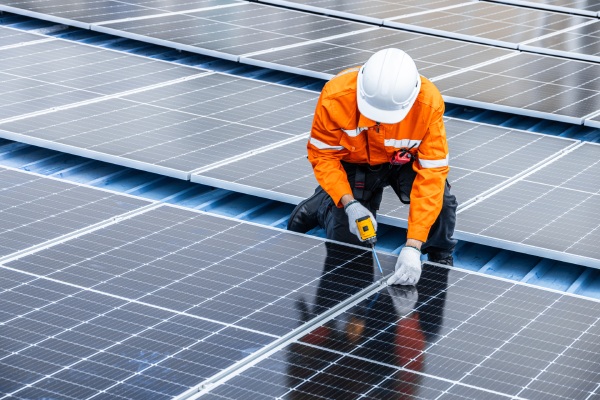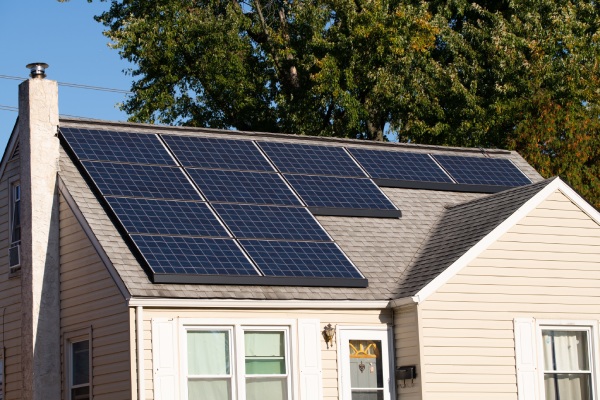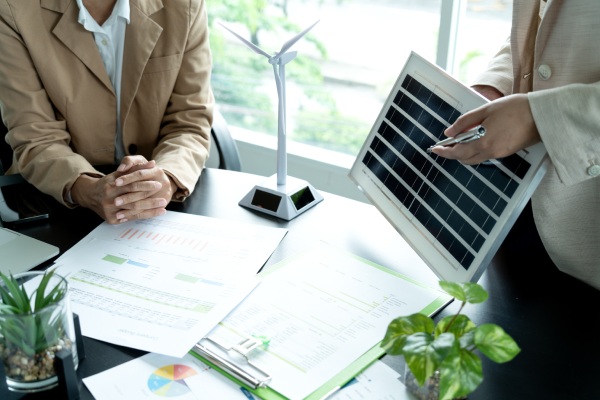As energy prices soar and environmental concerns rise, solar power emerges as a compelling solution for modern homeowners. This renewable energy source not only promises significant reductions in electricity bills but also offers an eco-friendly alternative to fossil fuels.
The technology behind solar panels has advanced significantly, making them more efficient and affordable than ever before. With the added benefits of government incentives and tax credits, investing in solar energy is becoming increasingly attractive for those looking to enhance their home’s sustainability and value.
Understanding Solar Energy and Its Mechanism
Solar energy harnesses the sun’s power, converting it into usable electricity through photovoltaic (PV) cells. These cells, typically made of silicon, capture sunlight and trigger an electrical reaction, producing direct current (DC) electricity. An inverter then converts this DC into alternating current (AC), which powers household appliances and systems. This process not only reduces reliance on fossil fuels but also minimizes carbon emissions, making it a sustainable energy choice.
Solar panels are installed in arrays, often on rooftops, to maximize sun exposure. Their efficiency can be affected by factors such as geographic location, roof orientation, and shading from nearby structures. Despite these challenges, advancements in solar technology continue to improve energy capture and conversion efficiency, making solar a viable option even in less sunny regions.
Financial Implications of Installing Solar Panels

Investing in solar panels can lead to significant long-term savings, primarily by reducing monthly electricity bills. The initial cost of solar installation can range from $10,000 to $18,000, but various financial incentives can alleviate this expense. Federal tax credits, for instance, offer a 30% reduction in installation costs, which significantly lowers the upfront financial burden. Additionally, state-specific rebates and net metering programs can further enhance savings by allowing homeowners to earn credits for surplus energy fed back into the grid.
The return on investment (ROI) for solar panels typically occurs within six to ten years, depending on factors such as energy consumption, location, and system size. Over the lifespan of 25 to 30 years, homeowners can enjoy substantial savings, potentially amounting to thousands of dollars. Moreover, solar panels can increase property value, making them a financially savvy choice for eco-conscious homeowners.
Environmental and Economic Benefits of Solar Panels
Solar panels offer a dual advantage of environmental sustainability and economic savings. Environmentally, they significantly reduce carbon emissions by harnessing the sun’s energy, a renewable resource, thereby decreasing reliance on fossil fuels. Economically, solar panels lower electricity bills by allowing homeowners to generate their own power, potentially saving thousands over the lifespan of the system.
Moreover, solar panels can enhance property value, as homes with solar installations often sell at a premium. Financially, homeowners benefit from tax incentives and rebates, further offsetting installation costs. Additionally, net metering allows for selling surplus energy back to the grid, providing an extra revenue stream. These benefits make solar panels a compelling choice for environmentally conscious and financially savvy homeowners.
Conclusion: Is Solar Energy Worth It?
Investing in solar energy offers numerous benefits for homeowners, including significant savings on electricity bills, reduced carbon emissions, and increased property values. While the initial installation cost can be high, financial incentives such as tax credits and rebates can substantially reduce expenses. Additionally, solar panels provide energy independence, allowing homeowners to generate their own power and potentially sell excess energy back to the grid.
For those living in areas with high electricity rates or abundant sunshine, the return on investment can be particularly attractive. The long-term benefits of solar energy, including its contribution to a sustainable future, make it a worthwhile consideration for many homeowners. Ultimately, the decision to switch to solar should be based on individual circumstances, such as energy needs, financial situation, and environmental goals.
Transform your home and energy bills with Frontline Home Solutions‘ expert solar panel installations. With over 30 years of experience in McAllen/RGV, TX, we offer transparent assessments, flexible financing, and 25-year warranties to ensure you get the most out of your solar investment.
Say goodbye to high electricity bills and hello to sustainable energy savings. Ready to make the switch? Explore our solar solutions today and see how easy it is to power your home with the sun.





